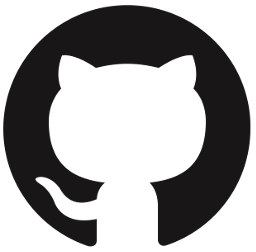Interface and Union This tutorial follow the previous one to add support for GraphQL Interface and Union.
We’ll use the final source code of the previous tutorial as a starting point.
If you don’t know what GraphQL Interface and Input are, read this documentation beforehand:
We will enhance our Todo list by adding two type of Todo:
Ponctual Todo
Recurent Todo
We will use Interface to declare a common base between those two inputs.
The full source code for this tutorial can be found here .
Setup our Interface First let’s transform the Todo ObjectDefinition to an Iterface.@Interface decorator here:
1 2 3 4 5 6 7 8 9 @Interface ( { name: 'Todo' } ) export class Todo { @Field ( { type : 'ID' } ) id: string ; @Field () title: string = "" ; @Field () content: string = "Empty todo" ; }
Then let’s define both our PonctualTodo and Recurent Todo:
1 2 3 4 5 6 7 8 9 10 11 12 13 14 15 @ObjectDefinition ( { implements : [Todo] } )export class PonctualTodo { @Field ( { type : 'ID' } ) id: string ; @Field () title: string = "" ; @Field () content: string = "Empty todo" ; @Field () date: string = "Date" ; } @ObjectDefinition ( { implements : [Todo] } )export class RecurentTodo { @Field ( { type : 'ID' } ) id: string ; @Field () title: string = "" ; @Field () content: string = "Empty todo" ; @Field () occurence: string = "Date" ; }
Here, we use the implements field of the @ObjectDefinition to define which interface is implemented by each types.
Note that the implements field is also present on the @ObjectImplementation
Also note that the name field on both type is not specified.RecurentTodo and PonctualTodo .
Wire them in the Schema: Don’t forget to add those new type in the schema components list:
1 2 3 4 5 6 @Schema ( { rootQuery: 'RootQuery' , components: [ RootQuery, User, UserImpl, Todo, PonctualTodo, RecurentTodo ] } ) export class MySchema extends BaseSchema {}
Update the fake database: Update our fake database with the new fields:
1 2 3 4 5 6 7 8 9 10 11 12 13 14 15 16 17 let todos: { [ key: string ]: (PonctualTodo | RecurentTodo) [] } = { Bob: [ { id: '0' , title: 'Todo1' , content: 'Bob Todo1 content' , occurence: 'Every Week' }, { id: '1' , title: 'Todo2' , content: 'Bob Todo2 content' , date: 'Friday' }, { id: '2' , title: 'Todo3' , content: 'Bob Todo3 content' , occurence: 'Every Day' } ], Alice: [ { id: '3' , title: 'Todo1' , content: 'Alice Todo1 content' , date: 'Mondy' }, { id: '4' , title: 'Todo2' , content: 'Alice Todo2 content' , date: 'Saturday' }, { id: '5' , title: 'Todo3' , content: 'Alice Todo3 content' , occurence: 'Every Week' } ], Steeve: [ { id: '6' , title: 'Todo1' , content: 'Steeve Todo1 content' , occurence: 'Every Month' }, { id: '7' , title: 'Todo2' , content: 'Steeve Todo2 content' , date: 'Tuesday' }, { id: '8' , title: 'Todo3' , content: 'Steeve Todo3 content' , occurence: 'Every Day' } ] };
That’s it !
You can now query you GraphQL server using GraphQL query fragment to allow polymorphism such as:
1 2 3 4 5 6 7 8 9 10 11 12 13 14 15 { user( name:"Bob") { id todos { id __typename ... on PonctualTodo { date } ... on RecurentTodo { occurence } } } }
which should return:
1 2 3 4 5 6 7 8 9 10 11 12 13 14 15 16 17 18 19 20 21 22 23 24 { "data": { "user": { "id": "0", "todos": [ { "id": "0", "__typename": "RecurentTodo", "occurence": "Every Week" }, { "id": "1", "__typename": "PonctualTodo", "date": "Friday" }, { "id": "2", "__typename": "RecurentTodo", "occurence": "Every Day" } ] } } }
How does it work ? If you have experiences with plain GraphQL you might be asking you do we guess the type of each particular items ?
Well AeroGraphQL add it’s own logic to deduce the Type of a given object.
Checkout this page on resolveType function for more informations.
What’s next Next tutorial will walk you through using the dependency injection system to enhance your resolvers..

